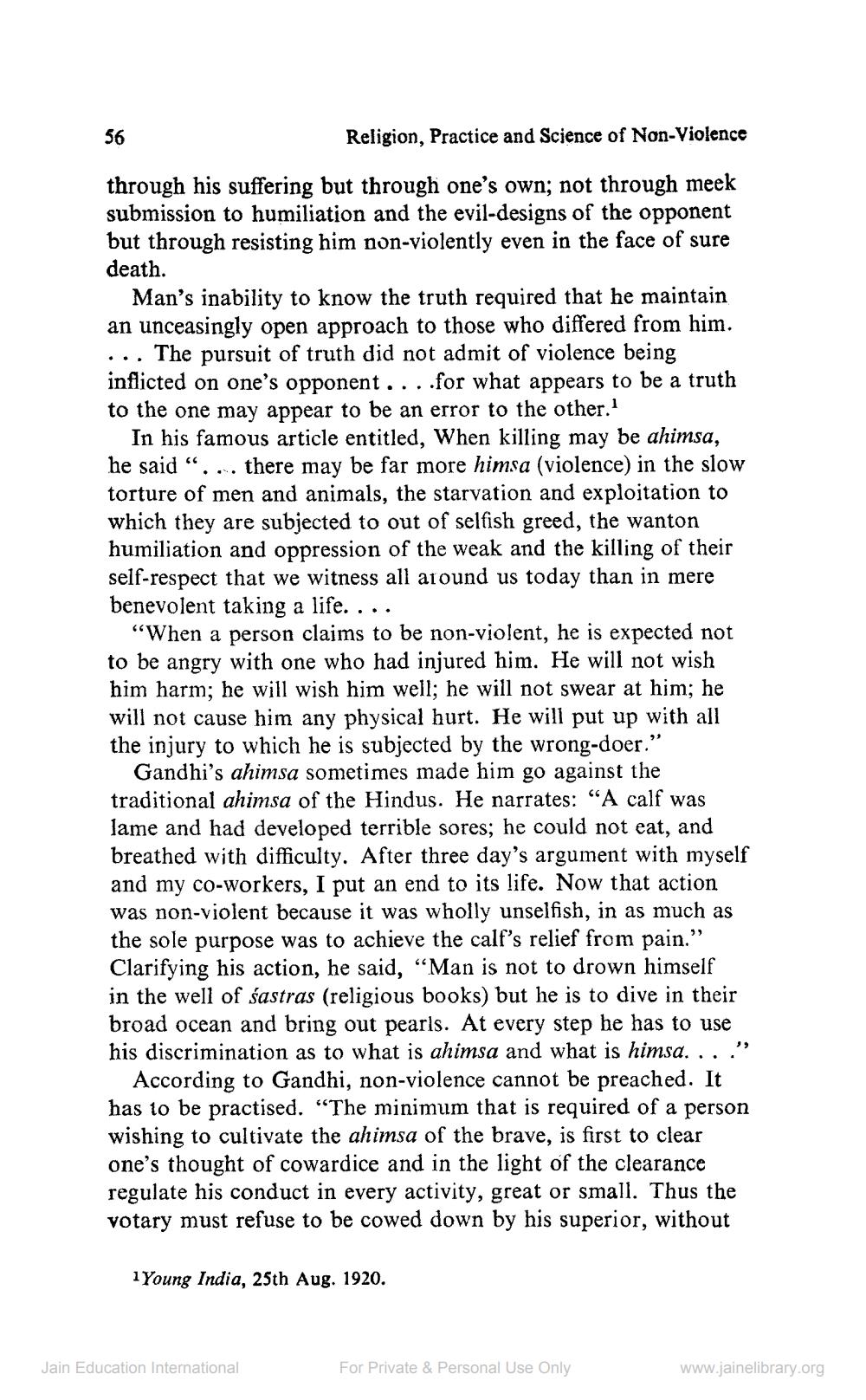________________
56
Religion, Practice and Science of Non-Violence
through his suffering but through one's own; not through meek submission to humiliation and the evil-designs of the opponent but through resisting him non-violently even in the face of sure death.
Man's inability to know the truth required that he maintain an unceasingly open approach to those who differed from him. ... The pursuit of truth did not admit of violence being inflicted on one's opponent....for what appears to be a truth to the one may appear to be an error to the other.
In his famous article entitled, When killing may be ahimsa, he said “... there may be far more himsa (violence) in the slow torture of men and animals, the starvation and exploitation to which they are subjected to out of selfish greed, the wanton humiliation and oppression of the weak and the killing of their self-respect that we witness all around us today than in mere benevolent taking a life....
“When a person claims to be non-violent, he is expected not to be angry with one who had injured him. He will not wish him harm; he will wish him well; he will not swear at him; he will not cause him any physical hurt. He will put up with all the injury to which he is subjected by the wrong-doer.”
Gandhi's ahimsa sometimes made him go against the traditional ahimsa of the Hindus. He narrates: “A calf was lame and had developed terrible sores; he could not eat, and breathed with difficulty. After three day's argument with myself and my co-workers, I put an end to its life. Now that action was non-violent because it was wholly unselfish, in as much as the sole purpose was to achieve the calf's relief from pain.” Clarifying his action, he said, “Man is not to drown himself in the well of sastras (religious books) but he is to dive in their broad ocean and bring out pearls. At every step he has to use his discrimination as to what is ahimsa and what is himsa....
According to Gandhi, non-violence cannot be preached. It has to be practised. "The minimum that is required of a person wishing to cultivate the ahimsa of the brave, is first to clear one's thought of cowardice and in the light of the clearance regulate his conduct in every activity, great or small. Thus the votary must refuse to be cowed down by his superior, without
1 Young India, 25th Aug. 1920.
Jain Education International
For Private & Personal Use Only
www.jainelibrary.org




